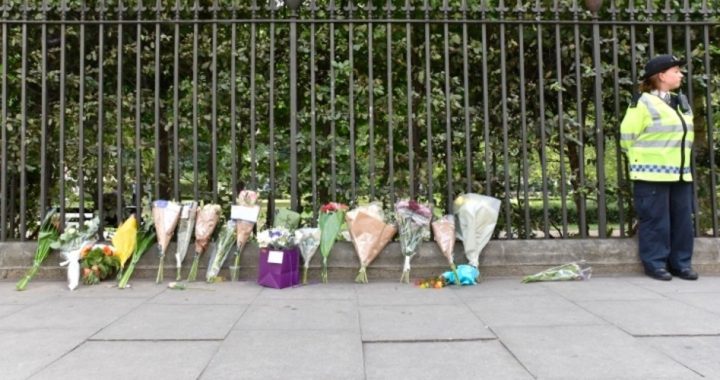
An American tourist was killed in a knife attack in London on the evening of August 3 by a young man from a Somali family who first sought asylum in Norway before moving to England. The assailant wounded five other people in what appeared to be a random attack, before he was tasered and apprehended by police. The other victims included British, Australian, and Israeli individuals, and another American.
The attack took place in Russell Square, an area of London near the British Museum visited by many tourists (including this writer a year ago).
The victim was identified as Darlene Horton, a 64-year-old retired special education teacher from Florida. Her attacker was named as Zakaria Bulhan, a 19-year-old IT student who came with his family to London at the age of five. Neighbors speaking to Britain’s Daily Mail said Bulhan’s family were Muslim, and described his mother as “kind and friendly.” Former classmates of Bulhan interviewed by the London Evening Standard said Bulhan was a “teacher’s pet” who was occasionally bullied.
The Evening Standard cited a statement from Scotland Yard saying that police officials do not believe the mass stabbing was terror-related, and that detectives are instead attempting to determine whether Bulhan had mental health issues. On the night of the attack, anti-terror chief Mark Rowley, a Met Police assistant commissioner, was quoted by the UK Sun as saying that “mental health was a significant factor” in the attack but that “terrorism was still a line of inquiry.”
A report in Britain’s Metro newspaper said that a profile created on a book rating website in Bulhan’s name indicated that he was interested in Islamic theology. He had recently read a biography of the Prophet Mohamed and book of Quran verses and hadiths.
While it is possible that Bulhan was simply a very disturbed young man acting alone, the recent history of terrorist attacks across Europe, practically all perpetrated by refugees from the Middle East or North Africa, will undoubtedly impel police investigators to consider that angle.
Among the terrorist attacks that have occurred in Europe during the past year:
• On July 24, Mohammad Daleel, a Syrian refugee who pledged allegiance Abu Bakr al-Baghdadi, leader of ISIS, blew himself up outside a wine bar in Ansbach, Germany, killing himself and injuring 15 people, four of them seriously.
• Also on July 24, a Syrian asylum seeker armed with a large knife or machete attacked pedestrians in Reutlingen, Germany, killing his coworker, who was a pregnant Polish woman, and also wounding two other people.
• A gunman with dual German-Iranian citizenship killed nine people at a mall in Munich on July 22.
• Two attackers who had pledged allegiance to ISIS entered a Catholic church in Normandy, France, on July 26, and seized four hostages before fatally slitting the throat of a priest. The ISIS-linked Amaq news agency said two of its “soldiers” had carried out the attack.
• Two shooters killed 11 people at the Charlie Hebdo newspaper offices in Paris on January 7, 2015.
• Suicide bombers and shooters, in a series of coordinated attacks, killed 130 people in Paris and its suburbs last November 13.
• Coordinated bomb attacks in Brussels on March 22 killed 32 people. The perpetrators belonged to a terrorist cell that had been involved in the November Paris attacks.
• On July 14, a lone attacker in Nice, France, deliberately drove an 18-ton truck into crowds celebrating Bastille Day, killing a least 84 people.
ISIS has claimed responsibility for the Belgian and French attacks.
Photo showing flowers and tributes at the site of the knife attack at Russell Square: AP Images
Related articles:
Two ISIS-linked Attackers Slay Priest in French Church
ISIS Claims Responsibility for Brutal Ax and Knife Attack on German Train
Germany’s Terror, Mayhem, and Murder Spree: Thank You, Mrs. Merkel
French President: Refugees Still Welcome, Despite Paris Attack
Trump and Clinton Talk About Nice, France Attack in TV Interviews



